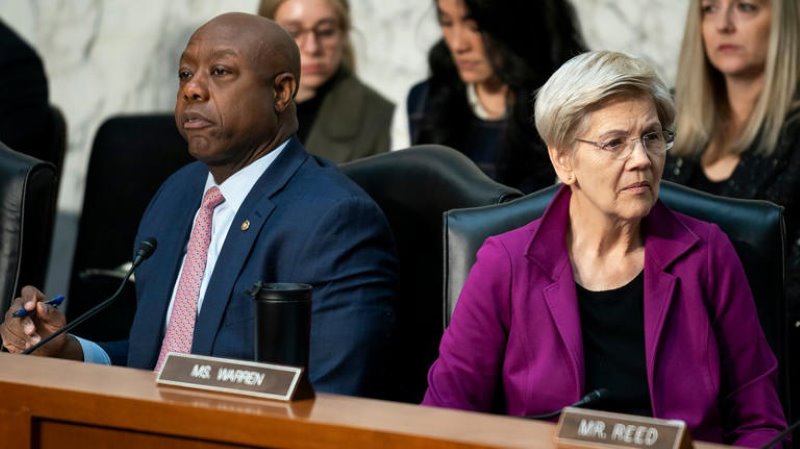U.S.
Senate Advances Toward Key Vote on Industry-Backed Stablecoin Legislation
The United States Senate is preparing for a decisive vote this Monday evening that could advance industry-supported stablecoin legislation. A group of crypto-friendly Democrats, led by Kirsten Gillibrand and Angela Alsobrooks, aims to break their party’s internal blockade on one of former President Donald Trump’s key priorities.
Republican Effort to Overcome Democratic Obstruction
Last week, Senate Majority Leader John Thune filed a motion to end the Democratic filibuster and begin debate on the bill. Republicans want to secure its approval before Memorial Day. To succeed, they need at least 60 votes, including support from seven Democrats
Democratic Concerns Consumer Protection and Regulation
Previously, Democrats had blocked the bill’s progress, citing “numerous” unresolved issues. Their concerns include consumer protections, anti-money laundering measures, and specific regulations for foreign stablecoins like Tether.
Controversies Surrounding Trump Family’s Crypto Ventures
The controversy intensified due to the Trump family’s expanding crypto portfolio. Many Democrats demanded that the bill include prohibitions preventing the president and senior officials from profiting from cryptocurrency projects while in office.
The promotion of a Trump-branded memecoin, which offered private dinners and White House tours as incentives, was criticized by some Democratic senators as potentially corrupt.
Trump-Linked Stablecoin Emerges with Billion-Dollar Valuation
Another source of criticism was a Trump-linked stablecoin that surpassed a \$2 billion market valuation since its March launch, raising concerns among lawmakers.
Bipartisan Consensus to Move Forward with Amendments
Despite tensions, bipartisan negotiators reached an agreement on amendments last week, regaining support from crypto-friendly Democrats.

Credit Analysts Revise Forecasts Amid Market Improvements
Credit strategists at major institutions such as Goldman Sachs, Barclays, and JPMorgan have revised their annual…
Democratic Senator Mark Warner, a moderate member of the Senate Banking Committee, announced his backing of the bill, stating that although it is not perfect, it represents an improvement over the current regulatory vacuum.
Progressive Faction Maintains Strong Opposition
Senator Elizabeth Warren, the senior Democrat on the Banking Committee, continues to oppose the bill. She recently released a critical report highlighting the bill’s failure to prohibit Trump and his family from profiting from cryptocurrencies regulated under the proposed framework
Warren also warns of regulatory gaps that could enable criminals and terrorists to exploit stablecoins outside the traditional financial system.
Financial Stability Risks and Warren’s Warnings
Warren points out that the bill lacks safeguards to prevent systemic risks and potential taxpayer-funded bailouts if a stablecoin collapse occurs. Unlike bank deposits, stablecoins are not federally insured, exposing holders to losses.
Banking Sector Concerns Over Stablecoins
Banking leaders fear stablecoins could divert deposits and reduce credit availability, especially for small businesses and farmers. Although banks have pushed to prohibit tech firms and retailers from issuing their own tokens, they only secured limits on paying interest to stablecoin holders.
Coinbase opposes this restriction, envisioning stablecoin accounts eventually replacing traditional bank accounts.
Merchants Support Legislation for Lower Costs and Speed
Meanwhile, retailers support the bill, expecting to benefit from lower costs and faster transactions compared to traditional payment methods like credit and debit cards. According to the Nilson Report, U.S. merchants paid over \$187 billion in swipe fees last year.
Next Steps: Legislative Reconciliation Pending in the House
The House Financial Services Committee approved its own stablecoin legislation, but it has yet to pass the full chamber. Some House Republicans propose merging it with a broader cryptocurrency regulatory bill. The House and Senate must reconcile differences before sending a unified bill to the president for approval.


